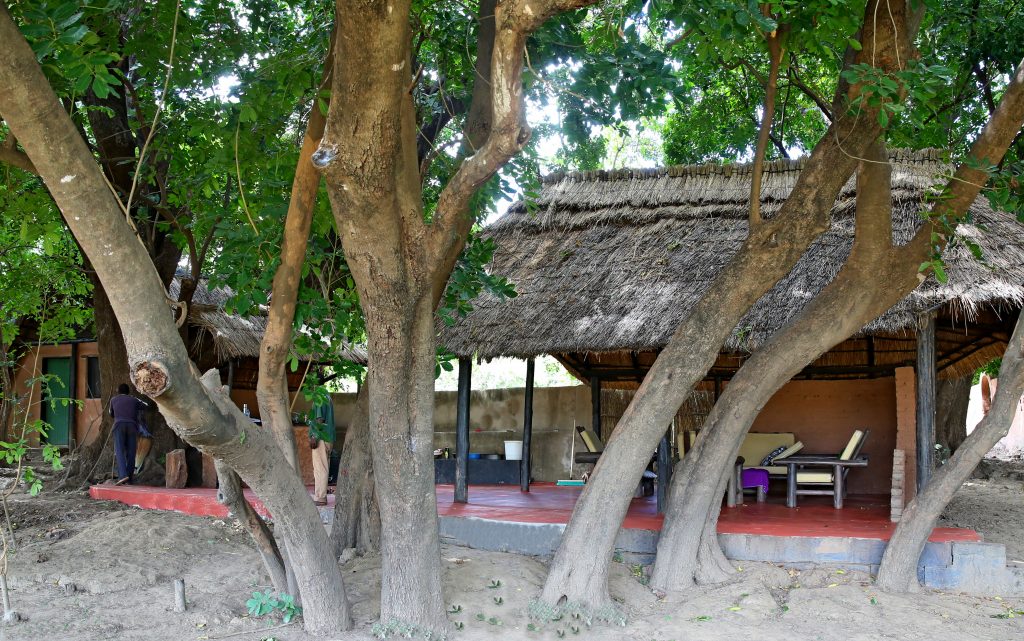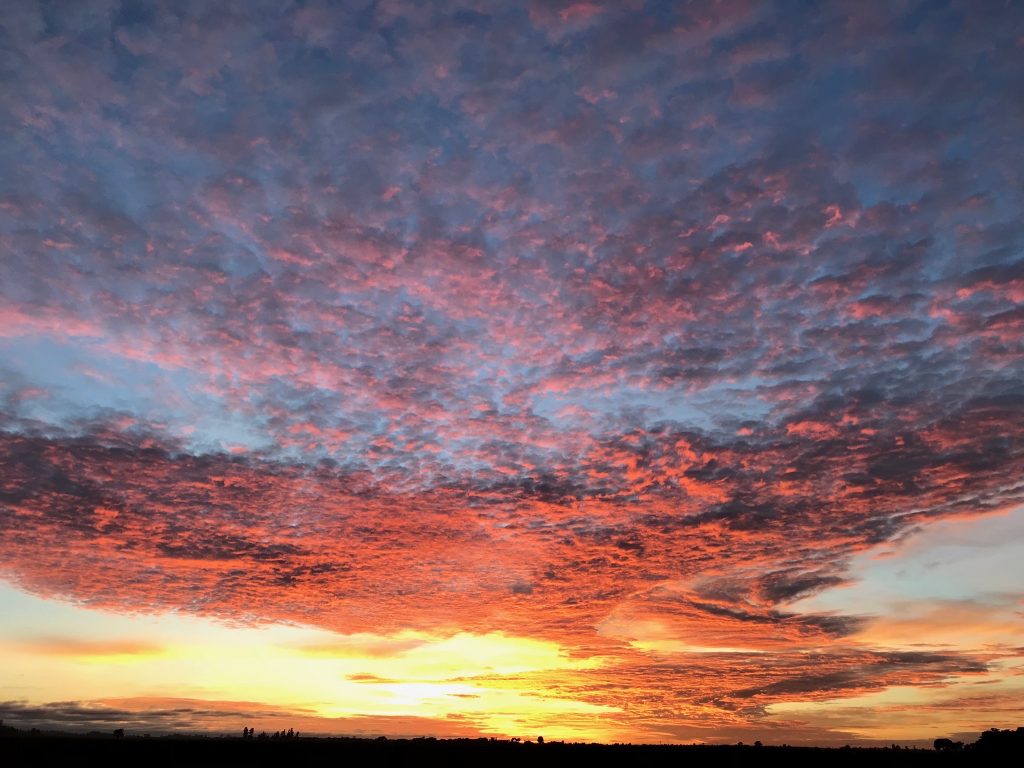Article: Tony Wood and Tisha Greyling

The enigmatic African Pitta can be very difficult to find. Way back, after two abortive trips to Masoka Camp in December 2012 and January 2013, my client John, decided to return in December 2013 with friends, Andre and Pieter, so it was a very full Land Cruiser that made its way down the escarpment and into the Zambezi Valley.
After leaving Harare around 6 a.m., we arrived in camp around noon and after a light lunch we set off looking for the elusive Pittas. Fantastic views of Livingstone’s Flycatchers got us off to a good start and within about 45 minutes – SUCCESS! Whilst all acknowledged that this was not a brilliant sighting, it was without doubt an acceptable “big tick” for the boys. The Jesse Bush, made up largely of Combretum spp., where the Pitta can normally be found, is VERY thick and being in big game country is also quite dangerous, with the occasional close elephant or lion encounter, where pitta hunts have been abandoned in preference for client safety!
This first pitta viewing certainly took the pressure off Mack and myself. Masoka is primarily a birding destination and is home to a number of very special species regarded as difficult birds to find. During the afternoon we ticked off Red-throated Twinspot, Emerald Cuckoo, Thick-billed Cuckoo, Lilian’s Lovebird, Thrush Nightingale and a Three-banded Courser. Other “specials” include Livingstone’s Flycatcher, African Broadbill, Narina Trogon and Arnot’s Chat to name just a few. Evening rolled in and with a fire made by the very helpful camp staff, we ate and drank well.
Pitta ‘season’ is during the rains and that night it started to pour. With the help of the buffeting wind, the chalets became saturated as the gauze windows do not keep out the rain! Andre is lying in his bed at 5:30 a.m. and he can hear a Pitta calling. He thinks, “Wood is messing around with a bird call recording”. I am also lying in my bed hearing a Pitta calling and think the same about my client. Both of us were very wrong! There was a Pitta calling in the tree above the kitchen! How quickly people can get dressed when the need arises!
We all set off into the riverine forest that overlooks the dry Angwa River, ticking off bird species. By about 10:30 a.m., I suddenly heard traffic. In the middle of nowhere? Not possible, surely? We ran back to camp, to an absolutely amazing sight. Flood water is coming UPstream! The Mkanga River, a few kilometres downstream, came down in a massive flash flood and on reaching the Angwa spread out in both directions! To cap it all, we heard the sounds of voices and water coming from upstream. Around the corner come local lads running ahead of the water wielding spears, stabbing cat-fish by the dozen. We watched this spectacle in awe before the two floods, one up and one down, finally met, right in front of our camp. The entire river bed was now filled with water. A few hours later, however, it had started to retreat and by evening, as the sun burnt off the clouds, we were left with just sand again.
Situated on the banks of the Angwa River, Masoka Camp is idyllically hidden in a grove of ancient Natal Mahogany trees. Sitting quietly in their cooling shade, one sees all sorts of game on the far bank. Herds of elephant often cross the river at first and last light to come and feed in the lush forest areas.
Magnificent specimens of Ebony, Nyala Berry, Star Chestnut, Tamarind, Wild Mango, Baobab, even Panga Panga, can be found. Not to mention the insects, butterflies and orchids.
Of course, the real reason for selecting Masoka is the African Pitta (Pitta angolensis). This bird, from west and central Africa, migrates south every year into central and southern Africa to breed. Extremely elusive and retiring, it is a species eagerly sought after by the more determined birders.
The really good news is that seeing a Pitta is not particularly arduous because of the fantastic efforts of McKenzie Zirota. One can drive there in about five hours from Harare (4×4 essential in the rainy season). You can choose between fully catered or self-catering, simply using the camp’s cutlery, crockery, utensils and can hire an experienced local cook.
The camp has three thatched en-suite chalets that sleep two to four. For larger groups, an extra tent with outdoor bathroom is provided. The thatched gazebo is very comfortable with a fire pit for those convivial evenings.
The Dream in the Wilds – Tisha Greyling
In 2006, Mack was just 20 and living with his parents in their kraal in Masoka Village. Mack’s father, Gift, had already schooled him in the importance of conservation. Gift was a key player in the CAMPFIRE (Communal Areas Management Programme for Indigenous Resources) project, which sprung from the 1975 Parks and Wildlife Act, that gave landholders the right to protect and manage wildlife for their own benefit. Sadly the camp fell into neglect as political dispensations changed.
His dream as a young boy was to fix up and run the camp for wildlife tourism and Mack was encouraged by other guides to keep records of all Pitta information. The next step was to get his professional guide qualification. With his tips, he bought the books and started studying. Today, he is a few months away from his final qualification.
Other keen birders got to hear of his dream and contributed funding, materials, equipment and labour to fix up the camp. Mack and I trained local camp assistants and encouraged guests to donate equipment and books to local schools. Water tanks were donated, being driven 2000 km to the camp. I taught vegetable gardening and nutritious cooking, professional guides taught Mack about guiding, someone bought a rifle for him and he is now the problem animal control officer for the village.
The preservation of the Pitta lies in the hands of Mack, his assistant guide Tich, camp staff and villagers. Their understanding of the need to preserve the Pitta breeding areas has created a unique conservation project whilst support and fees from visitors provides an income to the communal area.
Mack and his wife now have their own house in the Zirota kraal. He and his staff run the camp like clockwork and some of the world’s top photographers, international and regional birders still talk about their memories of Masoka – The Dream in the Wilds.

BOOKING DETAILS and DIRECTIONS
Janet & Tony Wood +263 77 223 8418 twigwood@mango.zw
Mack Zirota, +263 77 980 7261 MackenzieZirota@gmail.com
FB Masoka Camp
